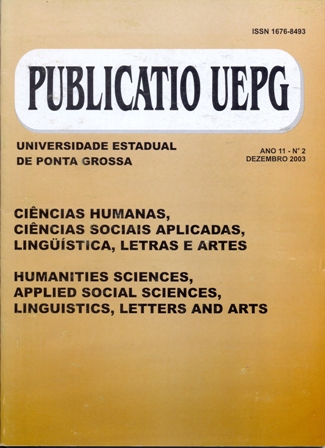TRANSCULTURATION IN THE VENTRILOQUIST’S TALE
Resumo
Transculturation is a key word in post-colonial encounters and involves the phenomena of colonial space, contact zone, cultural sites, transformation, adaptation and hybridity. In the context of the imbalances that the cross-cultural space reveals, the reaction of the colonial subject through parody, mimicry and sly civility in the novel The Ventriloquist’s Tale (1999) by Guyanese novelist Pauline Melville is discussed. European cultural hegemony represented by the adventurer, the religious and the intellectual is interrelated with a family group of savannahs Amerindians, with their mythology, culture and customs. The cross-cultural encounter shows the weakness of Western culture when the latter endeavors to other a ‘primitive’ community and treats its mores as subaltern and defective. The parodical attitudes of the Macusi Amerindians keep at bay the encroachments of disrupting Western culture, while their sly civility maintains their identity. However, this does not downplay colonial violence and the stratification policy it enforces. If the resulting hybridity ideologically reshaped colonized Amerindians, it also reveals the defeat the three European categories mentioned above suffered in the wake of their cultural encounter.
Key words: colonial encounters; hybridity; transculturation
Downloads
Downloads
Publicado
Como Citar
Edição
Seção
Licença
 Site licenciado: Creative Commons Atribuição 4.0 Internacional.
Site licenciado: Creative Commons Atribuição 4.0 Internacional.
Esta licença permite que outros distribuam, remixem, adaptem e criem a partir do seu trabalho, mesmo para fins comerciais, desde que lhe atribuam o devido crédito pela criação original. Este posicionamento está de acordo com as recomendações de acesso aberto da Budapest Open Access Initiative (BOAI).





